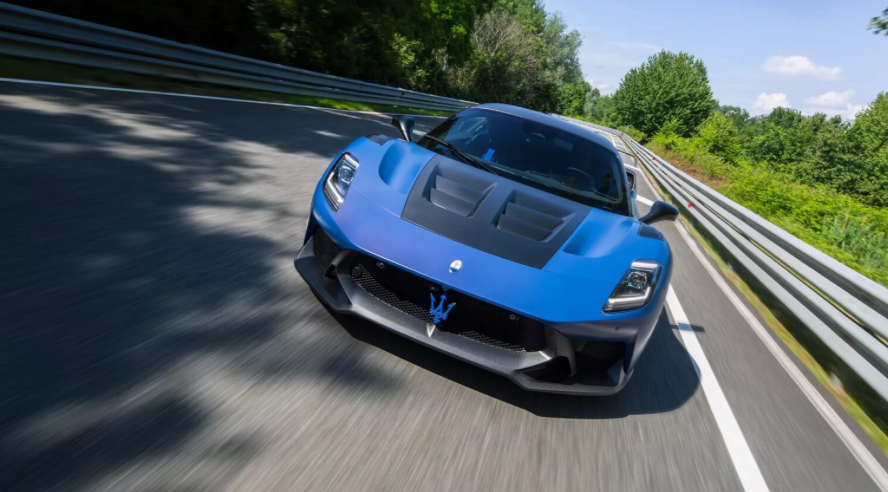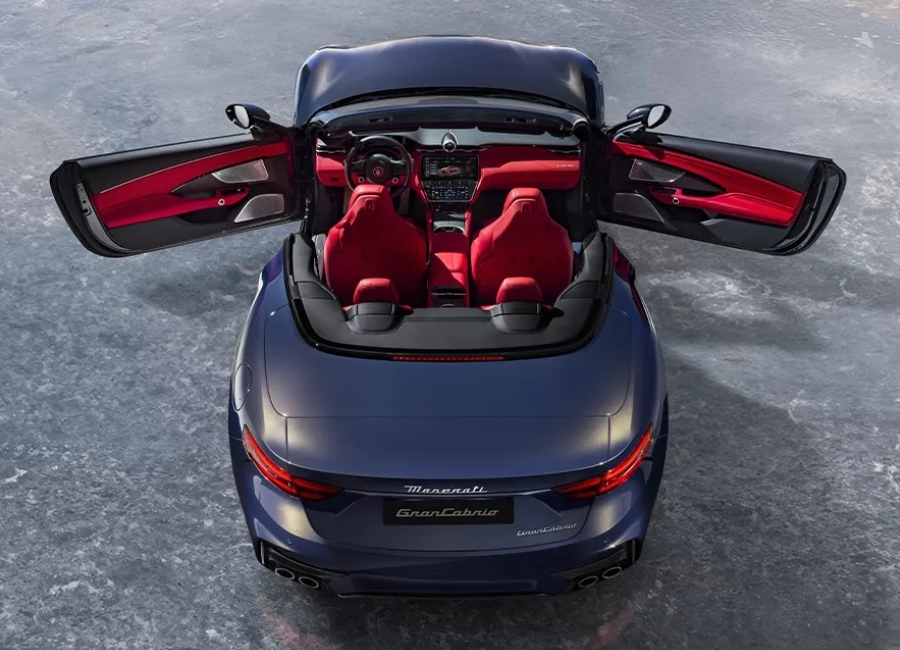The Dismal Prospects for Maserati Are Concerning
- Joe Lim
- Apr 10, 2024
- 4 min read
Inadequate marketing and declining sales compel Maserati to enhance its efforts for sustainability.
Maserati, confronted with numerous challenges including inadequate marketing and excessive discounting, must accelerate its efforts to remain viable. Maserati, once emblematic of Italian elegance and performance, today confronts uncertainties over its viability in a competitive and electrified automotive landscape. Is it changing gears rapidly enough to be competitive? LUXUO has examined Jaguar's contentious rebranding initiatives, and it appears that Maserati may soon jeopardize its esteemed legacy with dubious decisions.

In 2024, Maserati, a renowned Italian automobile manufacturer, will celebrate its 110th anniversary since its establishment in 1914. More than a century after its establishment, this luxury vehicle manufacturer is encountering challenges. Upon the publishing of its semiannual report, parent company Stellantis indicated that Maserati's sales appeared dismal. By June 2024, the quantity of vehicles delivered to buyers decreased from 15,300 to merely 6,500. What transpired? Carlos Tavares asserts that the significant drop in sales is attributable to bad marketing rather than issues with the products or pricing strategy.
In October 2024, Stellantis appointed Santo Ficili as CEO of the luxury Italian brand, succeeding Davide Grasso. Ficili, once the head of Stellantis’s Italian market, is now responsible for the Alfa Romeo brand of the automaker. Grasso was appointed to the newly created position of chief heritage officer at Stellantis. He is now tasked with the curation of the history and heritage of the 14 brands of Stellantis, which encompasses collaborations with archives and museums.
The resignation of Carlos Tavares, CEO of Stellantis, the parent company formed by the merger of Fiat Chrysler Automobiles and PSA Group, in early December 2024, generated significant attention.

Vehicles under Stellantis' 14 marques — Abarth, Alfa Romeo, Chrysler, Citroën, Dodge, DS, Fiat, Jeep, Lancia, Maserati, Opel, Peugeot, Ram Trucks, and Vauxhall — are engineered, manufactured, and marketed. At the time of the merger, Stellantis employed about 300,000 individuals, operated in over 130 countries, and maintained production sites in 30 nations.
The status and future of the renowned Trident automobile brand are at the heart of the controversy. Stellantis NV’s premium brand Maserati is currently facing dwindling sales and inadequate marketing, alongside repeated leadership changes in recent weeks.
Carlos Tavares recently indicated the dismal prospects of the renowned Italian company by stating, “We will terminate operations if they do not generate profit.” We cannot sustain unprofitable brands. Such is the simplicity of the process. He was discussing all the companies encompassed by the extensive corporate umbrella, rather than focusing solely on Maserati.
Maserati confronts a formidable challenge, despite Stellantis announcing in a press release that all 14 companies will remain and reiterated its 2021 commitment to invest in all brands for a decade. It must persist in a multi-year endeavor to expand and refresh its product lineup to enhance sales. The MC20 Folgore is scheduled for release in 2025, following the earlier unveiling of the fully electric GranCabrio Folgore this year. A zero-emission Quattroporte will launch in 2028, while a big electric SUV will be introduced in 2027. In December 2023, Maserati ceased production of its gasoline-powered Ghibli, Levante, and Quattroporte sedans to curtail expenses and discontinue unprofitable models.

Maserati sales during the third quarter of 2023 were 60 percent lower than the annual total, reflecting a decline of over 58 percent. Tavares ascribed Maserati's decline on excessive dealer discounting and inadequate brand positioning. Navigating the transformative dilemma of the current electrification in the car industry will be tough, despite the brand's capacity to focus on cost-reduction strategies and streamline its model lineup to enhance profitability and premium appeal. BYD's remarkable global performance demonstrates that China has become the foremost market for electric vehicle sales.
Data issued on Monday, December 9, 2024, indicates that the swiftly growing automobile has once more augmented its market share in China. Industry data indicates that BYD's share of the worldwide largest vehicle market rose from 12.5 percent to 17 percent in November. Furthermore, BYD is poised to exceed Ford and Honda, with an annual target of producing 4 million vehicles.

In the initial nine months of 2023, Maserati sold approximately 20,600 vehicles. Stellantis' latest official data indicates that this figure has significantly diminished to approximately 8,600 as of this year. The 58.3 percent decline has rendered the esteemed Italian automaker's future precarious.
In a recent interview with Top Gear, Tavares disclosed that Maserati's difficulties stem from inadequate marketing. Maserati is experiencing financial losses. “The rationale is marketing,” he stated. The Maserati brand need a distinct positioning, and the narrative should be enhanced. The name encompasses more than merely sports automobiles; it embodies gran turismo, quality of life, dolce vita, and technological advancement.
Demand for Maserati's luxury products in China has significantly diminished. Maserati must manage multiple priorities to sustain operations, including extending its product range, producing further electric vehicles, modifying its marketing strategy, and more.
The Trident in Distress: Is a Maserati Resurgence Possible?
The decline of Maserati can be attributed to a combination of reasons, including as inadequate marketing, misplaced brand positioning, and dependence on obsolete models that did not meet the market's increasing need for electrification. The instability of leadership has exacerbated its trajectory, as frequent CEO changes obstruct a cohesive long-term strategy. Maserati's existence depends on audacious innovation, enhanced narrative strategies, and redefined product offerings, as competitors such as BYD lead the EV industry and Stellantis confronts significant hurdles. Absent these modifications, the emblematic Trident jeopardizes its status as a relic in a swiftly transforming automotive environment.










Comments